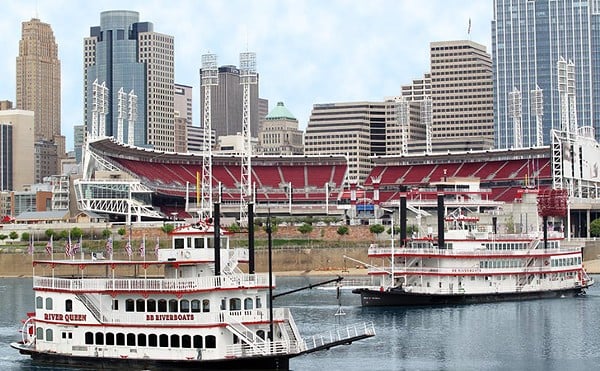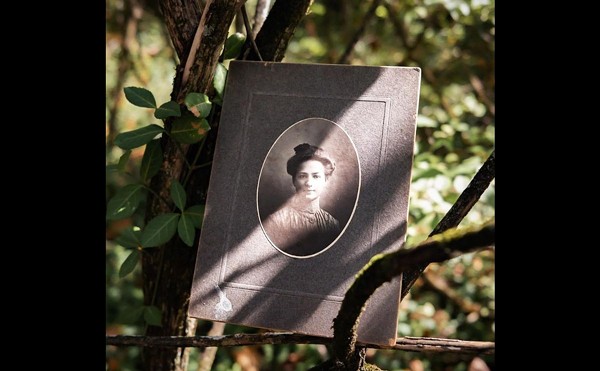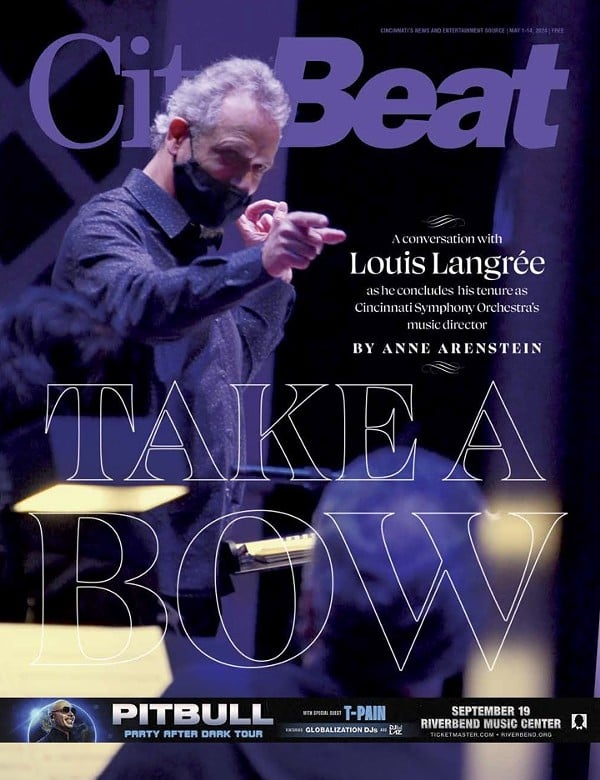I suspect that the word “dude” has never been uttered so many times in so few minutes.
John Ware and William Brown, both drama students at UC’s College-Conservatory of Music, invite you to hang out in the cluttered dorm room that is the 40-minute play The Masculinity Index. This snapshot shows us two aimless, barely post-adolescent, middle-class white males waxing and whining introspective about the “space between boyhood and manhood” and pledging to be each other’s bros/wingmen, a la Top Gun.
Promising in the description to reveal the never-before-told, secret truth that pre-adult men have real feelings, self-described “archetypal hero” and playwright Ware reports his fraught emotions but never delivers any deeper meaning, and the dialogue-then-monologue-then-music pattern never picks up any momentum.
In the musical interludes, Ware and Brown clumsily play Blink-182 and Atmosphere cover songs on their guitar and drum-kit setup. Although the songs offer a few pop-cultural signifiers to punctuate the spoken word, the mix was so loud on opening night in the narrow, shoebox-shaped venue at 1423 Vine Street that patrons cringed and plugged their ears.
“Who the fuck am I?” shouts Ware in his nebulous, aimless and disaffected monologue (which, of course, is about nebulous, aimless disaffection).
“I guess I’m tired of the bullshit,” mutters Brown, and then he lets his Holden Caulfield moment evaporate without following the notion to any conclusion. (What is “the bullshit,” exactly? And presumably he’s been exposed to so much of it that he’s tired of it? Will we witness a rebellion against it? Etc., etc., etc.)
Confessional but not revelatory, the monologues declare feelings of adolescent uncertainty and ennui but don’t confront any deeper meaning or claim any responsibility.
Then there’s the dialogue. Yet another week of rehearsal might help the stilted, halting delivery, which consists of jumbled phrases and half-syllables as the actors stumble over each other’s lines. Maybe a post-workshop re-write would eliminate unfortunate lines like, “it’s like everything is about money, and, like, doing stuff” or maybe the exchange where the characters mock women who dare to define their relationship boundaries. Perhaps more direction or staging work could improve the pacing, which switches between the two actors talking and shouting over one another in one second, to lengthy silences untethered to plot advancement or discernible meaning in the next.
Unfortunately, this very tame play lacks depth, direction, engagement and momentum. Its one conclusion about what it means to be a “real man” (“don’t go looking for a fight”) presents more Afterschool Special than Catcher in the Rye.
It takes a lot of heart and courage to create a work and offer it up to the Fringe audience, so I applaud Ware’s bravery and effort. I certainly didn’t write a play; I’m just reviewing what I see. But based on the show’s lofty, soaring description (“the journey of one young man to attain a sense of having grown up and to cross the mythical barrier between boyhood and manhood … the story of an archetypal hero who could express the anger, the frustration, and the triumph of an entire generation”), I was expecting something more thought-provoking, honest and enlightening.





